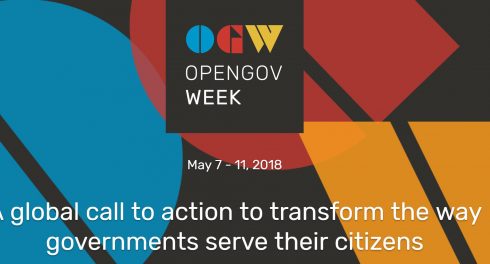Highlights:
- Open gov communal checkup
- Tech and tools
- Women first
- Index mania
- Funder schooling
- TAI spotlight: Smarter grant reporting to global development
In case you missed it…
Open gov communal check up
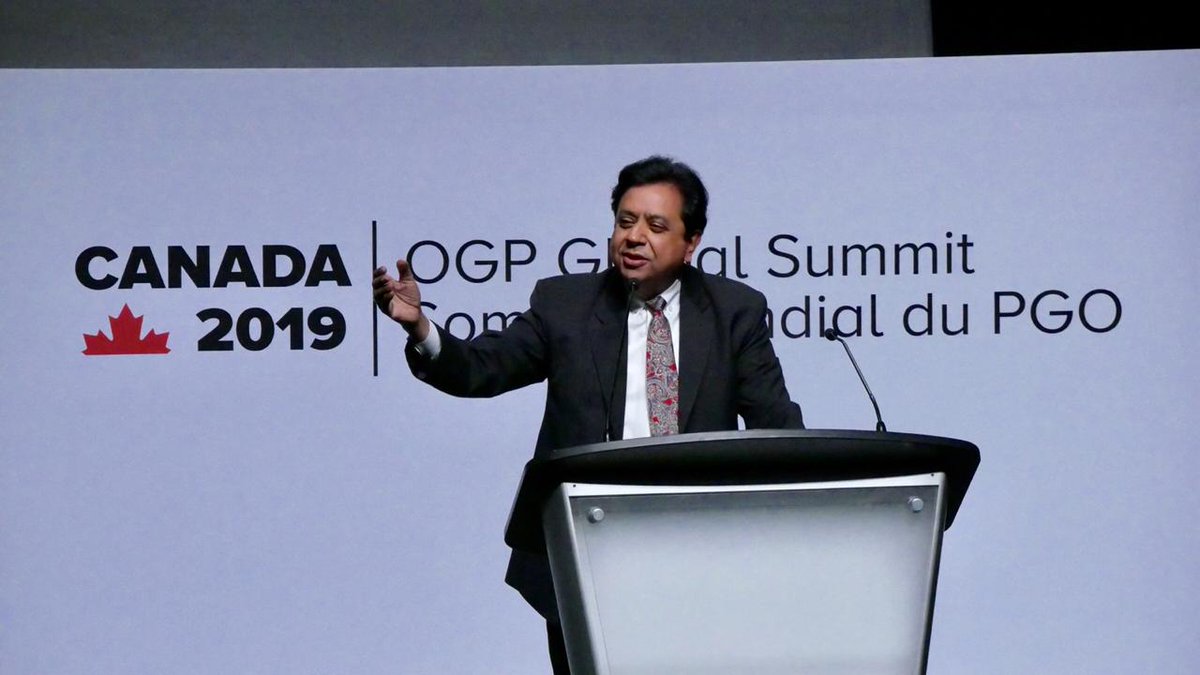
Photo: Open Government Partnership
Much of the global open government community (or at least those who could get visas) gathered in Ottawa last week for the Open Government Partnership (OGP) summit. Justin Trudeau’s appearance added a touch of glamour, big tech took a bashing from all sides, and there was a much more explicit connection made between open government and healthy democracy and welcome emphasis on the need to be more inclusive. Get a full flavor of the discussions via #OGPCanada.
Seeking some data to match up against these topics du jour? As we flagged last week, OGP launched its first open government global report (all 631 pages of it, across two volumes). It’s worth diving into whether you care about progress in a particular sector or the snapshot for your country. Such summits are also good occasions to recognize the civil servants who work hard behind the scenes to help create and implement national action plans. A case in point is the UK’s new plan ready just in time despite Brexit chaos and containing commitments ranging from greater transparency of publicly owned natural resources to improving the quality and quantity of data published for the delivery of public services through third-party contractors. Not that governments are the only ones to launch new plans – for example, Open Contracting Partnership officially introduced their new strategy and new look.
Not content with one report, OGP also released a paper on public roles in policy deliberation challenging any perceptions that public engagement on government decision making is too risky, overly selective or ill-fitting for complex topics. For a case of what could be done to get decisions out from behind closed doors, watch CEO Sanjay Pradhan’s opening remarks in Canada. Sanjay would likely agree with Rosie Carter on the importance of extensive listening and helping people see reason for optimism in slowing the hold of populist narratives.
Tech and tools
Civic tech can be an ally in such consultative processes and Rebecca Rumbul argues it is now an accepted, respected and widely used form of engaging citizens. However, she pinpoints the need for more government support. Governments “need to be open to citizen input, to support the principles of participatory democracy and, ultimately, to be hospitable to integrating civic tech with their own systems.” Building on this, Steve Davenport and Kristina Aquino use the case of Nigeria to argue that applying key open governance principles and tools at the state level has the potential to enhance service delivery efficiency and effectiveness and reduce corruption. A big new World Bank state-level project should offer room to test their faith.
Sticking with tools, the U4 Anti-Corruption Resource Centre digs deep into corruption in the education center and points to the value of such mainstays as participatory budgeting, public expenditure tracking surveys, and social audits in response. For more on anti-corruption tools see our Long Read.
Long read
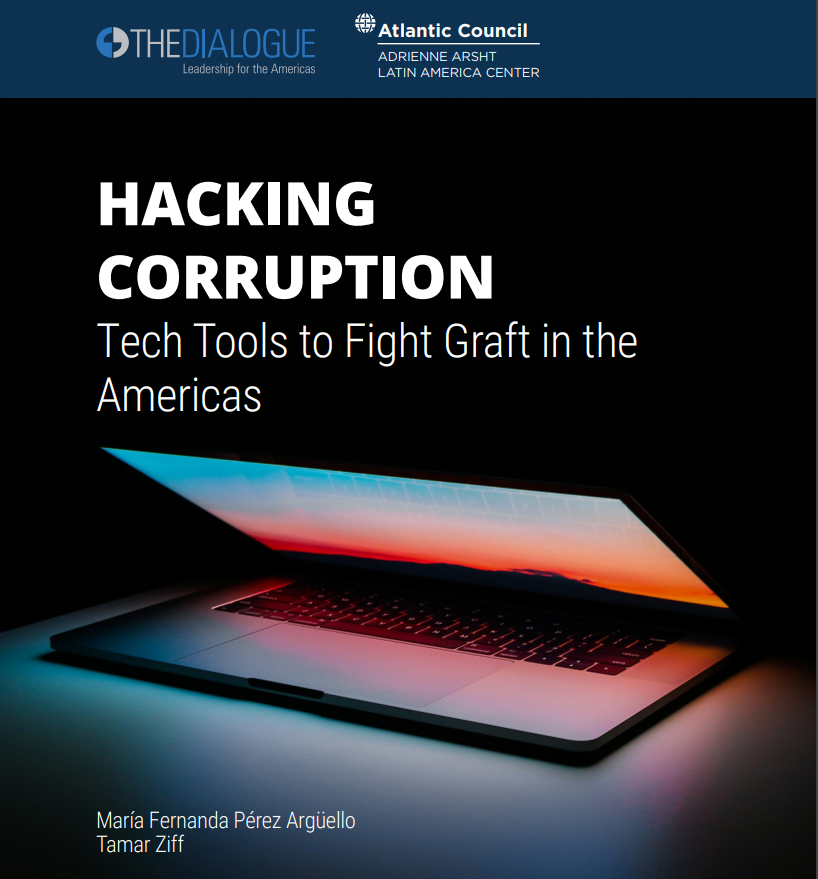
The report gives solutions to assist the fight against corruption, specifically in public procurement. It provides examples of a number of such solutions, as well as identifying obstacles to their more widespread adoption and proposing appropriate policy responses.
Women first
Good to see gender issues to the fore in Ottawa with the Break the Roles campaign reinforced by a new report giving shape to Feminist Open Government and highlighting risks of gender blind approaches with case studies ranging from Côte d’Ivoire to Kenya to Morocco to Indonesia to Costa Rica. Pair with Article 19’s case for tackling gender inequality through access to information. Hopefully the conversations at Women Deliver this week will provide more inspiration for delivering gender equality.
In terms of getting beyond the wonkish side of open government, to why we care in the first place, there were some inspiring stories shared at the Summit. TAI and the Open Gov Hub are glad to further contribute with launch of Open Gov Stories: A Global Podcast Series exploring the human elements of why social changemakers really do the work they do. Listen and add your own story to this global collection.
For a sense of the importance of different perspectives in our storytelling, we are excited to track the voices to appear on the From Poverty to Power blog – Maria Faciolince gives us a sense of what to expect.
Index mania
Time to get your index fix. Liverpool claimed the Champions League title this week, but it is Real Madrid who top the football transparency rankings. Not immune to scandal, UEFA may want to check out the Global Corruption Index (GCI) is committed to measuring both public and private corruption as well as other white collar crimes, while the Environmental, Social and Governance Index measures corporate risks concerning the environment, human rights and health & safety. Check out rankings and scores of different countries.
Want to know the most influential women in gender and global policy? Check out Apolotical’s list. What about the top 100 Africans influencing levers of power across politics, business and the arts? The Africa Report provides the ranking. (Congratulations to Ory Okolloh from Luminate – TAI member – who came in at position 44.)
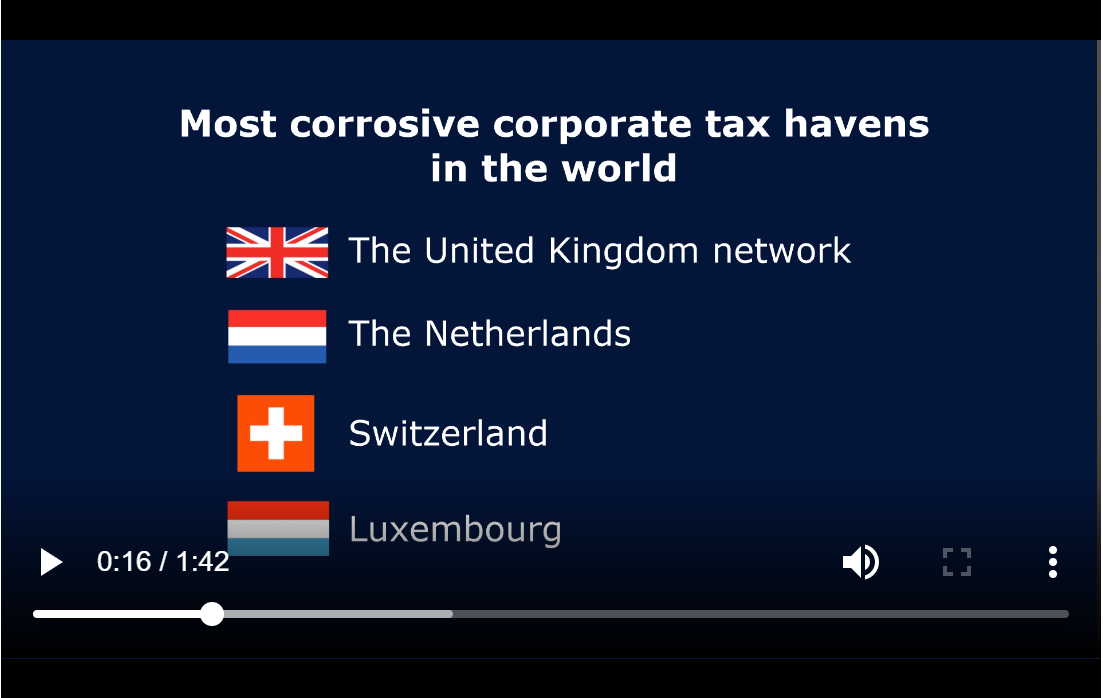
Lastly, the Corporate Tax Haven Index is out – explore different country rankings here. The UK and handful of OECD countries rank as the biggest enablers of corporate tax dodging. Despite Swiss voters approving tax reforms that mean foreign firms cannot get better tax deals than domestic ones, Swiss cantons are doing all they can to preserve their haven status. Meanwhile, British overseas territories dominate the haven list. Check a video overview of the Index in German.
One potential ray of good news? Moves to make Jersey’s private ownership register public. Those making the case can draw on the latest B Team and Engine Room report clarifying the ability to have beneficial ownership transparency and adequate data protections. Making centralized registers on beneficial ownership widely accessible is core to taking on illicit financial flows argues Douglas Dalby as the FBI urges us all to learn more from the Panama Papers and their aftermath. Perhaps the BOLG can help demonstrate the value. What that you ask? The newly launched Beneficial Ownership Leadership Group of countries building public registries.
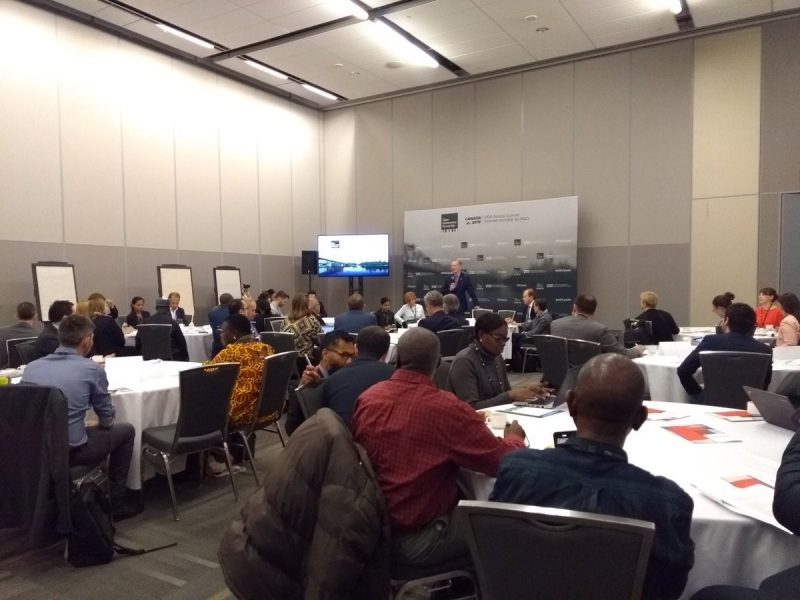 Full house for launch of the BOLG at the OGP Summit in Ottawa.
Full house for launch of the BOLG at the OGP Summit in Ottawa.
Turning to broader tax issues, a new Oxfam paper urges both governments and donors to shift to a more equity-centered approach to domestic resource mobilization i.e. increasing revenues should not be separated from consideration of who contributes them. One way to ensure a fairer tax system? Keep up on audits, not least on high-income tax payers. Chuck Marr is worried by an IRS report noting the US government audited fewer millionaires and large corporations in 2018 than the previous year.
Funder schooling
Thinking of advancing advocacy and policy change in your philanthropic organization? Loren McArthur presents four promising funder practices you can emulate. Lobbying and electoral engagement. Assembling cross-cutting teams of advocacy specialists. Investing significant resources into convening and network building to encourage strategic alignment among their advocacy grantees. Investing in long-term field building. (We’re glad to say TAI members are in the business of doing all four!) Meanwhile, Aaron Dorfman urges philanthropies to gut check if their current reality matches their rhetoric and urges scaling up support to grassroots social movements. David Callahan pinpoints seven mistakes new billionaire philanthropists make that could be avoided, including relying too much on elite experts.
Finally, the OGP Summit was not the only venue of interest last week. TAI also joined the conference of Grantmakers for Effective Organizations (GEO) in Seattle. Lots to absorb – some of it captured in the new GEO Funders handbook including ways to find answers to some of your critical learning questions. Of course, grantmakers commission a lot of evaluations. We tend to bemoan a failure to read and reflect on them in general, but Jonathan Fox reminds us that it may be a good thing we do not get overly swayed by attempts at rigorous impact evaluation. “Low dose” interventions, fuzzy proxies, and narrow theories of change in assessing transparency, participation, and accountability interventions all limit their persuasive power.
Finally, for a longer perspective on the evolutions in the good governance world, check out 25 years of DFID governance programming via 25 tweets – worth it!
TAI spotlight
TAI’s smarter grant reporting journey | TAI
Alison Miranda shares our collective effort to tackle grant reporting. See more in our aligned collaboration case note.
Launch of challenge grant to foster accountable governance | Open Society Foundations
The Foundation announced a matching grant to help Open Government Partnership raise $10 M to scale its work with democracy reformers around the globe.
Developmental evaluation of Ford’s BUILD program | Ford Foundation
The Foundation shares initial findings on how well the BUILD program is achieving its goals.
Global development’s past, present, and future | Hewlett Foundation
Ruth Levine offers some thoughts about the nature of current and future global challenges—and how philanthropic and other types of institutions need to adapt.
Calls: Proposals, papers, speakers and course invites
- Call for Applications: Africa Debt Crisis Analysis: June 14
- Hewlett Foundation’s Call for proposals: African policy research institutions to advance government use of evidence – June 15
- IDS Perceptions Survey: June 16
- Call for Proposals: Research on Impact and Effectiveness of Open Government program – July 8
- Call for Applications: 100&Change: July 16
- OECD Questionnaire for Youth Organisations – June 21
- Request for Proposals: Women’s Political Participation in Hybrid Regimes: August 9
On the calendar
- Women Deliver 2019 Conference – June 3- 6, 2019 (Vancouver, Canada)
- The Role of Open Data in Strengthening Nigerian Democracy – June 11, 2019 (Washington, DC)
- RightsCon Tunis – June 11-14, 2019 (Tunis, Tunisia)
- InterAction Forum 2019 – June 11-13, 2019 (Washington, DC)
- Global Conference on Transparency Research – June 26 – 27, 2019 (Rio de Janeiro, Brazil)
- Tax Justice Network Conference 2019 – July 2 -3, 2019 (City, University of London, UK)
- ATI/ITC Tax and Development Conference 2019 – July 2 -4, 2019 (Berlin, Germany)
- IDEAS 2019 Global Assembly and Third International Conference on Evaluating Environment and Development – September 30 – October 4, 2019 (Prague, Czech Republic)
- Global Symposium (COPGS) on Citizenship, Governance, and Accountability in Health – October 15-18, 2019 (New Delhi, India)
- What Works Global Summit 2019: Building Evidence – October 16 – 18, 2019 (Mexico City, Mexico)
- Global Perspectives 2019 – October 29 – November 1, 2019 (Addis Ababa, Ethiopia)
- The Story Conference – November 27-29, 2019 (Melbourne, Australia)
